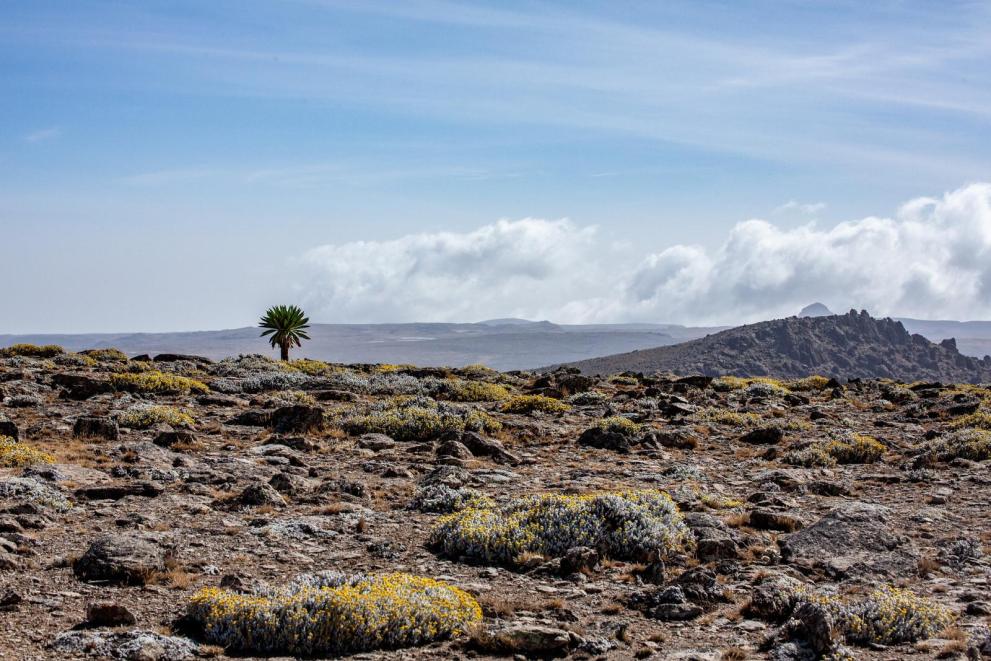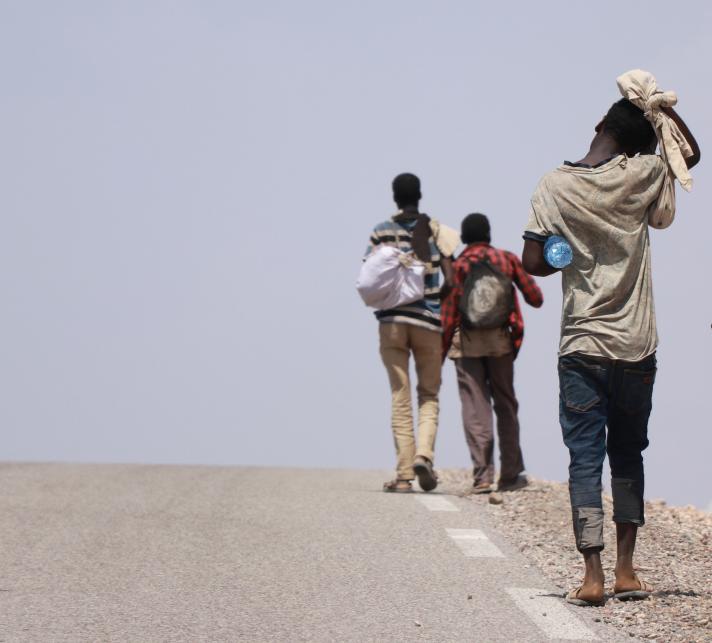
‘Improved coordination between public agencies and service providers is crucial for the protection of trafficked persons and vulnerable migrants in Amhara Regional State,’ explains Getasew Mengie, Director of the Human Power Research and Employment Service Directorate at the Amhara Bureau of Labour and Skills Development (BoLS).
The Ethiopian Federal State is one of the main hubs of human trafficking. ‘Smugglers and traffickers of human beings have developed networks in the region. As a result, migrants face economic exploitation, physical abuse and gender-based violence during their journey, among other hazards. These people need to be supported and empowered so that they can make life choices and achieve social inclusion,’ Mr Mengie adds.
Memorandum of Understanding signed
‘For a long time, we faced a lack of coordination and cooperation to investigate and prosecute cases of human trafficking and protection for victims of trafficking and smuggled migrants,’ he remarks. ‘There was a significant awareness gap about the work done by the different partners such as the police, the immigration office or civil society organisations providing migrants and victims of trafficking with assistance and protection.’
In March 2019, a Memorandum of Understanding (MoU) was signed between seven state departments and six civil society organisations (CSOs) concerning collaboration on the identification, referral and protection of victims of trafficking, including enhanced service provision such as shelter, family reunion, psycho-social support or medical aid. The document outlines the duties and responsibilities of each institution and service provider in detail.
Human traffickers can no longer pose as victims
Mulugojam Teklu is head of the women’s rehabilitation centre of Agar Ethiopia, a local CSO operating in Bahir Dar. The organisation supports victims of trafficking by providing residential rescue, rehabilitation and reintegration services.
She explains the situation before the signature of the MoU: ‘In our case, we were only focused on rehabilitation and family reintegration, without having a formally coordinated flow of information and referrals with partners. That made it difficult for us to differentiate between traffickers and victims. There were instances where human traffickers and smugglers used to come to our centres posing as victims and we let them in’.
‘This meant the perpetrators were rarely brought to justice while there were possibilities of survivors being doubly victimised sharing a shelter and safe house with perpetrators’, Mulugojam Teklu adds.
According to her, the MoU and the trainings helped prevent human traffickers from finding their way into shelters: ‘the chances of us having traffickers in our centre is close to zero now’.
Referral system significantly strengthened
Since 2019, BoLS reported that a total of some 10,000 migrants and potential victims of human trafficking have been assisted through referral to protection services such as medical, legal and psychosocial support and shelters.
Mulugojam Teklu strongly believes that the improved information sharing between the different stakeholders led to the establishment of an effective and efficient network within the referral system: ‘Now we are even more successful at rehabilitating and reintegrating victims with their families and their chances of being trafficked again have significantly declined.’
One such case involved four girls who were found in the town of Metema and were identified as victims of trafficking by Timret LeHiwot Ethiopia (another local CSO who runs an emergency shelter among other activities). The organisation discovered that the girls were originally from the Oromia region and referred them to the police, confident that they would receive the necessary protection and further referral under the coordination of BoLS. An official at the Bureau checked which CSO could provide the required services for the young and traumatised victims and accompanied them to Agar. At the same time, the police opened a case to follow up on the crime. Finally, BoLS and Agar traced the families and reunited the girls with them in Oromia.
‘The MoU also aims to improve support for the participation of victims of trafficking in legal proceedings, thereby enhancing the effectiveness of anti-trafficking measures,’ Getasew Mengie adds. ’We are on a good path’, he proudly says.
Background
The Better Migration Management (BMM) programme supports Ethiopian authorities in establishing a referral process to improve the identification and protection of and assistance to vulnerable migrants and victims of trafficking. BMM has trained relevant governmental and non-governmental actors and provided guidance materials. CSOs have received further training and equipment to improve their services. The programme also supported the development of the MoU in the Amhara Region. BMM is funded by the European Union through the EU Emergency Trust Fund for Africa (EUTF) and by the German Federal Ministry for Economic Cooperation and Development (BMZ).
Details
- Publication date
- 21 April 2022
- Region and Country
- Horn of Africa
- Ethiopia
- Thematic
- Improved migration management
- Partner
- GIZ

